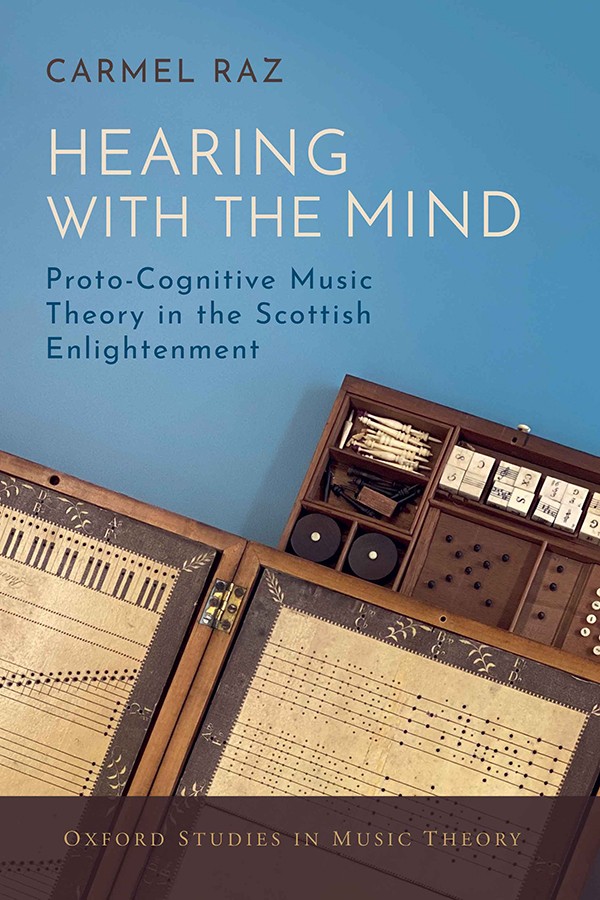Carmel Raz, a former professional violinist who's played at Carnegie Hall and the Kennedy Center, was always curious about how our minds perceive music. She followed her curiosity into an academic career.
Now an assistant professor of music in the College of Arts and Sciences, Raz has just published "Hearing with the Mind: Proto-Cognitive Music Theory in the Scottish Enlightenment" (Oxford University Press), available through open access.
The book focuses on the work of John Holden, who owned a pottery business during the Scottish Enlightenment period and wrote a treatise, "Essay towards a Rational System of Music."
"He was not coming out of the usual backgrounds that you find for 18th-century musicians," Raz said. "Most of them would have been children of musicians raised in a guild-like setting. Holden clearly just adored music, picked it up in some way, and was trying to make it work. There was something very grounding about him having this workmanlike career day job and then this audacious imagination at night."
The Chronicle spoke with Raz about the book.
Question: Your book focuses primarily on the work of John Holden; what was it that stood out most for you about him amidst all the research you did?
Answer: That you had a random merchant potter in Scotland in 1770 come up with what looks like a theory of musical cognition a century before we find anything that looks like that again. It offers us a chance to think about how much of the knowledge that we have today depends on method and how much of it can be arrived at in different ways. We tend to think that certain kinds of knowledge can only be acquired by experiment and empirical verification and statistics - get 100 undergrads to carry out a prescribed task, and you can quantify their performance. But the case of Holden shows us that that just a person introspecting on their own experience, if they're rigorous and original enough, can lead us to many of the same conclusions.
Q: In the book you weave together cognitive psychology and social history to tell Holden's story. How would you describe what he has to say about the nature of music perception?
A: Holden believed that we can understand psychology - how our minds work - on the basis of universal first principles. This is in line with Scottish philosophy of his day, but he goes much further, because he thinks he has discovered the single principle that explains how a complex domain of perception like music works. He says that when you look at a group of items, you grasp the totality of them as made of groups comprising smaller groups. He gives as an example what happens when we look at a row of church windows: If there are nine windows, for example, we perceive them as three groups of three. By generalizing this principle of equal groupings, he is able to use it to explain various aspects of musical experience. When we hear sounds, he claims, our minds are grasping vibrations and grouping them in a similar way. Groups of nested groups of vibrations end up as the percepts of pitch relationships or tonal relationships. This is an incredibly elegant and original theory. People today have different ideas about how we perceive tonal relationships, but for 1770 Holden's was a pretty complete account of the perception of the music he was thinking about, which was Scottish psalm tunes. It also foreshadows in key ways later thought in gestalt psychology, and ultimately how we understand perception to work today.
Q: You also write about Anne Young, who created a game that you describe as "a very early ludic program of music-theory pedagogy." What made you want to write about her?







